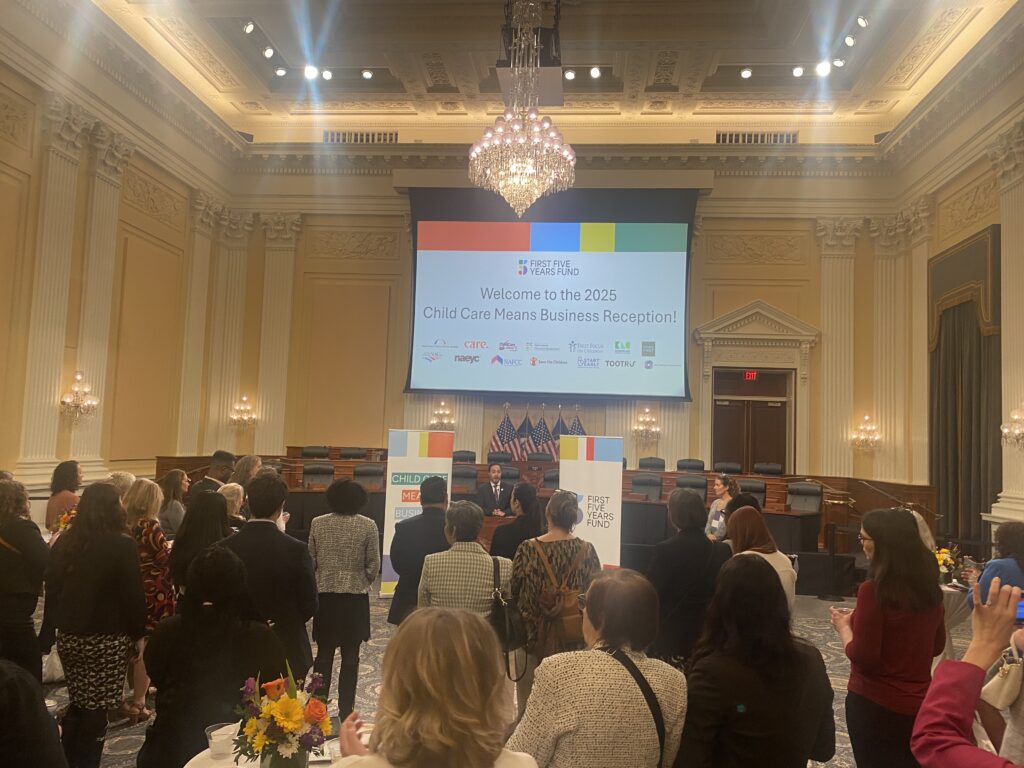New Evidence Suggests Expanding Access to Pre-K is Good for the Economy

The White House Counsel of Economic Advisers recently released an issue brief presenting new findings that investing in universal pre-K has broad economic benefits. Child Care is Infrastructure: Evidence from Universal Pre-K found that places that have invested in universal pre-K have seen higher employment rates among mothers with young children, and their analysis suggests that the benefits go beyond the individual child and family served, also supporting businesses and the overall economy.
Universal pre-K (UPK) programs are open to all children in an area, regardless of family income, often between the ages of three and five. The issue brief focuses on 10 states and large cities that offer pre-K to all 4-year-olds, have at least 30% of 4-year-olds enrolled, and that implemented their programs before the pandemic. They were: Georgia, Oklahoma, West Virginia, Florida, New Mexico, Wisconsin, Washington, D.C., Alabama, Vermont, and New York City.
The primary findings:
- Each 10% increase in pre-K enrollment is associated with a 1.6 percentage point increase in the average employment of mothers with young children.
- The employment rate of mothers with young children grew by 1.5 percentage points (or 3.2 percent) more in UPK areas than non-UPK areas over the same time period.
- After implementing UPK, overall private sector employment increased 1.26 percent more in UPK areas than in non-UPK areas, suggesting more overall economic activity.
- Both applications for new businesses and the number of businesses established were higher in UPK areas.
There is strong evidence that high-quality pre-K has a positive return on investment because of its long-term benefits for children. These go beyond kindergarten readiness to include high school graduation rates, college enrollment, and more. The CEA brief presents compelling evidence that policies to expand UPK benefit the economy more broadly.
A working paper released this month from the National Bureau of Economic Researchers found similarly positive effects of UPK on the economy. Parents’ Earnings and the Returns to Universal Pre-Kindergarten examined how enrollment in New Haven Public Schools’ (NHPS) pre-K program, a full-day UPK program in Connecticut, affected parents’ earnings over time. During children’s pre-K years, UPK enrollment increased weekly child care coverage by 11.3 hours, allowing parents to work more. It is important to note that New Haven’s program provided extended hours, so that most participating families had coverage for 10 hours per day. They found that enrolling a child in a UPK program raised parent earnings by 21.7%, or $5,461 per year, during the one- or two-year period when their child is of pre-K age. The gains in earnings persist for at least six years. The researchers concluded that “UPK is one of the most cost-effective active labor market policies ever evaluated in the US.”
Child care, which includes pre-K, is infrastructure. Just like bridges and roads, parents need child care to get to work. Despite the fact that investing in child care has large societal benefits, the costs are mostly covered by individual families. There have been increased federal investments in child care in recent years, and the Biden-Harris administration has made progress in making quality child care more accessible to families. Numerous states have also made investments in child care, and pre-K specifically. However, much work remains to make quality early education a reality for all families who stand to benefit.
Subscribe to FFYF First Look
Every morning, FFYF reports on the latest child care & early learning news from across the country. Subscribe and take 5 minutes to know what's happening in early childhood education.



